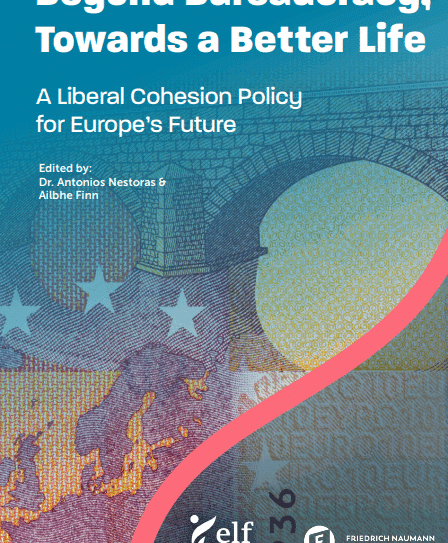Beyond Bureaucracy, Towards a Better Life – A Liberal Cohesion Policy for Europe’s Future
The European Union’s cohesion policy is arguably one of the most effective development policies in history For decades, it has served as a redistributive mechanism, building roads, digital networks, and public services across less-developed regions. But in an era of geopolitical tension, climate urgency, and technological disruption, a growing number of liberals argue that this approach is no longer enough.
